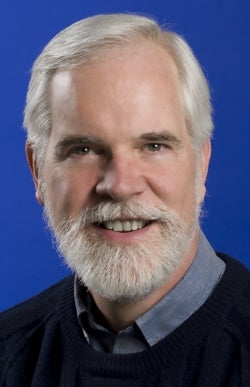Since 2007, students at Worcester-area colleges have been able to view art, go to the theater and enjoy all kinds of cultural offerings at a discount thanks to the Woo Card program of the Worcester Cultural Coalition. But how much is the Woo Card really used? And could the program be more effective?
The answer to these and other questions about Worcester’s cultural economy may be coming this spring, not from professional researchers but from students enrolled in an unusual class at Clark University.
Connecting The Community
Instructor Ted Buswick, executive in residence at Clark’s Graduate School of Management, said the class is part of an ongoing effort to link the school with the city of Worcester and the wider Central Massachusetts region. It was originally envisioned as a class for MBA students, but the school decided to open it to some undergraduate juniors and seniors as a way to include a wide range of interests.
Buswick said the full complement of 10 undergraduates, representing six or seven different majors, are already enrolled, and 15 graduate students will be able to sign up soon. The class is a joint venture of the Graduate School of Management and the Mosakowski Institute for Public Enterprise at Clark.
Buswick said a central goal in creating the course was making it possible for students to reach real conclusions about very specific issues.
“Too much academic research is simply that: academic research,” he said. “This is designed to be research that can immediately be put in use.”
Buswick said the students will help select a few questions to research in teams, but improvements to the Woo Card program will almost certainly be among the course topics. He has already discussed the idea with Erin Williams, Worcester’s cultural development officer, who says she’s looking forward to seeing what the class comes up with.
Williams said one important reason for the city to promote its creative economy is to help college students see it as an attractive place to live and work after graduation. She said classes like the one at Clark, as well as internships at the city Cultural Development Office, help engage students in the city’s cultural life.
“We consider them to be our ambassadors,” she said.
Buswick, who studies the value of the arts in business environments and helped write the recent book “What Poetry Brings To Business,” said the notion of creative economies can be difficult to study. For one thing, he said, different studies of specific regions’ economies have used different definitions of the term, so it can be hard to compare them. For example, some researchers count “creative economy” jobs as all jobs within cultural businesses and organizations like theaters and art galleries, while others look more at specific job descriptions, counting artists and designers regardless of where they work.
Still, Buswick said there’s good anecdotal evidence that Worcester is doing well for a city its size in promoting the arts. He said he’s impressed with participation in the annual stART on the Street festival and with the new interdisciplinary visual and performing arts degree that Worcester State University developed last year.

